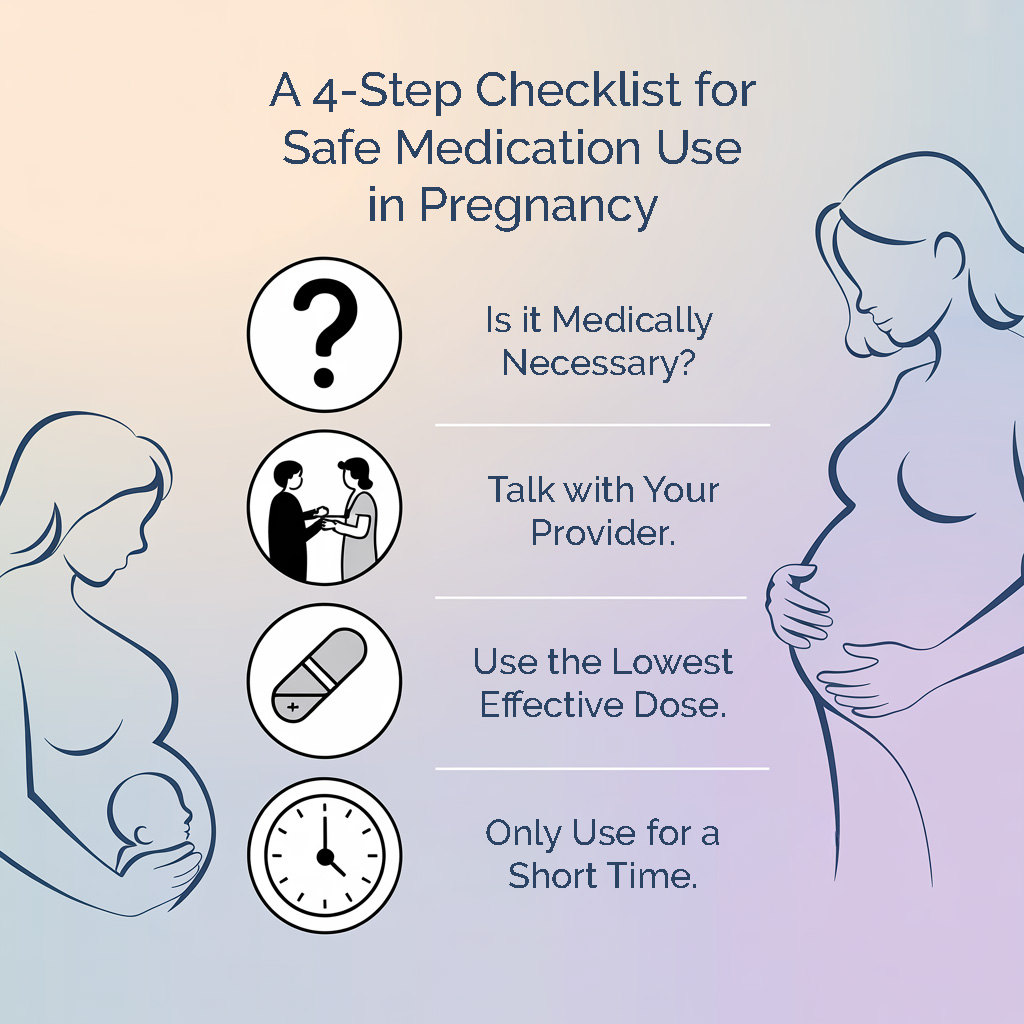Navigating pregnancy means making countless decisions to protect the health of your developing baby. A question we frequently hear from our patients at Valley Perinatal Services is about the safety of common medications. Recently, headlines about a potential link between acetaminophen (the active ingredient in Tylenol®) and neurodevelopmental conditions like Autism Spectrum Disorder (ASD) and Attention-Deficit/Hyperactivity Disorder (ADHD) have caused understandable concern for many expecting parents.
As your partners in maternal-fetal medicine, our goal is to provide you with clear, evidence-based information to help you make informed decisions. Let’s look at the science, the recommendations from leading medical organizations, and the important balance of risks and benefits.
Understanding the Headlines: Correlation vs. Causation
The concerns about acetaminophen stem from several observational studies that have suggested a correlation between its use during pregnancy and a slightly higher incidence of ADHD and ASD in children. These include large cohort studies, such as one analyzing data from the Boston Birth Cohort and another examining the Danish National Birth Cohort. These findings were later summarized in a 2021 consensus statement published in Nature Reviews Endocrinology which called for more precautionary action and further research.
It is crucial to understand what these studies can and cannot tell us.
They rely on asking mothers to recall their medication use, and they show a correlation, not causation. This is a critical distinction. A correlation means two things are observed happening together, but it does not prove that one thing causes the other.
For example, the studies could not fully separate the effects of the medication from the underlying reason it was taken. Was it the fever, infection or inflammation that led to taking acetaminophen that might be the contributing factor, rather than the medication itself? Because of these limitations, this data is not strong enough to prove that acetaminophen causes ASD or ADHD.
What Do the Experts Say?
Leading medical organizations, including the American College of Obstetricians and Gynecologists (ACOG) and the Society for Maternal-Fetal Medicine (SMFM), have reviewed the existing research extensively.
Despite the headlines, their guidance remains unchanged. Both ACOG and SMFM continue to state that acetaminophen is the safest and most appropriate medication for treating pain and fever during pregnancy. They emphasize that the available scientific evidence does not show a clear link between the careful use of acetaminophen and fetal developmental issues.
In their statement, SMFM clarified, “The available data is not strong enough to change our guidance… Pregnant individuals should not be frightened away from the many benefits of acetaminophen… The potential harm of an untreated fever for the pregnant person and the fetus is well-understood.”
The Known Risks of Untreated Fever and Pain
While the link between acetaminophen and neurodevelopmental disorders remains uncertain, the dangers of not treating fever or significant pain during pregnancy are well-established and serious.
A high, prolonged fever, especially in the first trimester, is a known risk factor for the developing baby. Documented risks include an increased chance of miscarriage, neural tube defects (like spina bifida), heart defects, and abdominal wall defects.

Similarly, severe or chronic pain can lead to increased maternal stress, anxiety, and high blood pressure, which can also negatively impact a pregnancy. Managing these conditions is not just about maternal comfort; it is a key part of maintaining a healthy pregnancy environment.
Our Recommendations for You
At Valley Perinatal Services, our advice aligns with the expert consensus. Your health and your baby’s well-being are our top priorities. We do not want you to suffer from pain or fever unnecessarily, especially when the risks of doing so are significant.
We recommend the following guidelines for using acetaminophen during pregnancy:
- Is it Medically Necessary: Do not take medication you don’t need. But if you have a fever or are in significant pain, acetaminophen is the recommended choice.
- Talk with Your Provider: Before taking any medication, including acetaminophen, please consult with us or your primary obstetric provider. We can help you confirm the correct dosage and ensure it’s the right choice for your specific health situation.
- Use the Lowest Effective Dose: Start with the smallest dose that provides relief.
- Only Use for a Short Time: Take the medication only as long as you need it
Navigating pregnancy news can be overwhelming. If you have more questions or would like to discuss your specific situation with one of our maternal-fetal medicine specialists, please call/text our office at (480) 756-6000 or schedule an appointment online. We are here to support you every step of the way.


